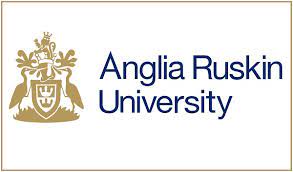ARU Student Talha Mehmood Develops Medily AI, an App Capable of Passing Medical Exams to Improve Patient Outcomes
A student at Anglia Ruskin University (ARU) has designed a medical app that uses artificial intelligence to help doctors and patients, and is so powerful that it can pass the UK medical examination – outscoring ChatGPT in the process.
Medily AI Pro has been designed by 3rd year student Talha Mehmood to improve patient care and streamline clinical decision-making by acting as an assistant and second pair of eyes for medical professionals.
It is capable of providing accurate diagnoses and management, can listen into consultation and write up notes automatically, craft accurate medical letters and can suggest exercise and meal plans. The app can also be used by members of the public to find out accurate information about conditions.
Medily’s learning model is continuously updated to ensure accuracy and relevance to the UK healthcare system.
It also provides a jargon-busting tool, helping medical professionals break down complex medical terminology for different groups of patients, including children and patients whose first language is not English.
The model took eight months to design, and has been trained to General Medical Council guidelines as well as using information from The National Institute for Health and Care Excellence (NICE) and the NHS.
When tested on the United Kingdom Medical Licensing Assessment (UKMLA), the final examination taken by medical students at the end of their course, it scored 89%, compared to 76% scored by ChatGPT.
As well as an assistant for medical professionals, it is also designed for trainee doctors to help them prepare for various types of exams, providing quiz questions and accurate simulations involving AI-generated patients.
Talha, who grew up in Harlow in Essex, is now looking for funding to roll out the product to a wider audience.
Talha, who was originally interested in computer science before beginning his medical training, said:
“It has taken about eight months to refine the model and train it to be as accurate as possible. Friends and colleagues soon saw its value and began using it daily.
“Witnessing its impact, I felt inspired to expand its reach. This is how Medily was born—to empower everyone with efficient, accessible knowledge, turning a simple late-night idea into a tool with the potential to make a global impact on people’s lives.
“Medily AI Pro is not just for doctors. It is also designed to be used by patients. Unfortunately it can often take time to get an appointment, and this model can help patients to find out more about their condition. It is not designed to replace a doctor’s opinion – the model makes it clear that patients should seek the opinion of a qualified medical professional before taking steps – but it could help remove scenarios where a patient goes online to find out more about their condition and ends up trusting an unreliable website or finds potentially dangerous misinformation on social media.”
Talha is also taking part in the ARU competition Think Big, open to students from all courses who have an innovative idea to potentially take to market. His app has already been endorsed by multiple doctors, clinicians, technology experts and tech founders.
Dr Stephen Hughes, Senior Lecturer in Medicine at Anglia Ruskin University (ARU), said:
“The fact that one of our own students has developed this from the start is a great credit to our School of Medicine.”

